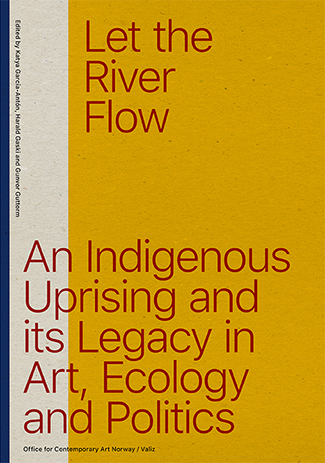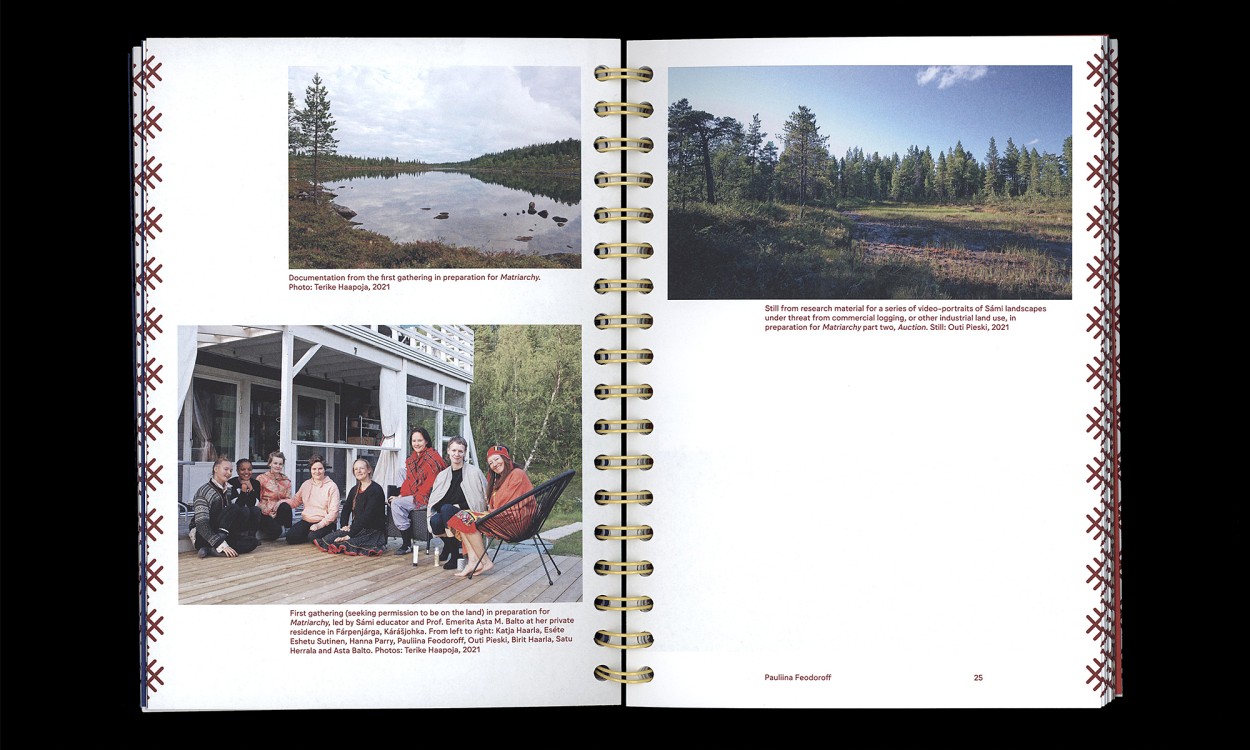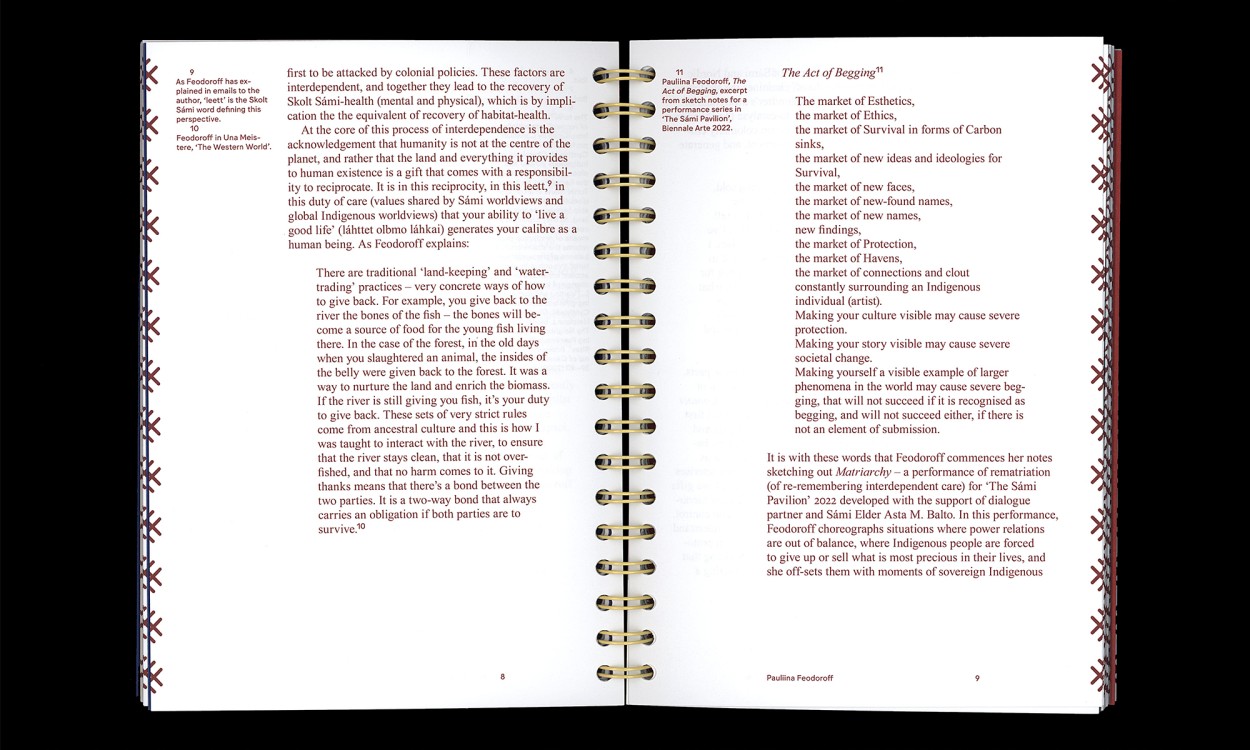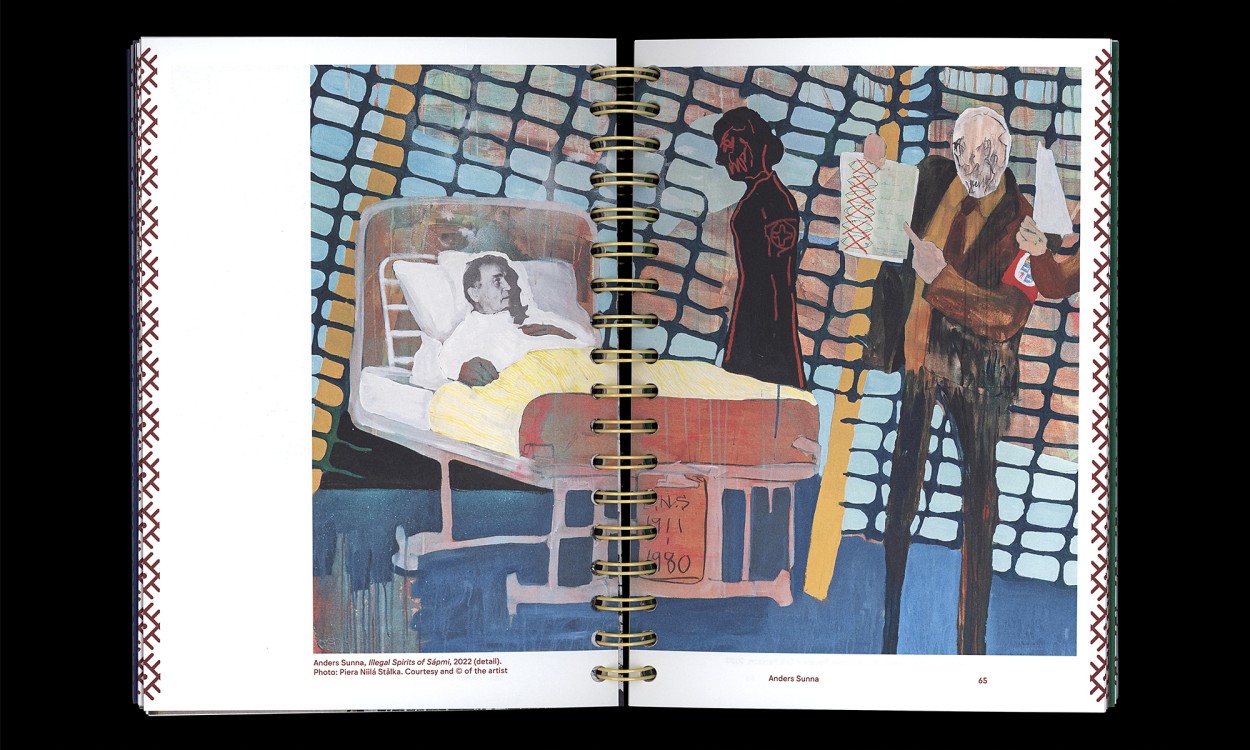Čatnosat
The Sámi Pavilion: Indigenous Art, Knowledge and Sovereignty

- The Sámi Pavilion, 59th Venice Biennale, 2022
- For the first time, Sámi artists will present their art and culture at the Biennale Arte di Venezia.
- This book serves as a project in its own right, providing further explorations into Sámi art, wisdom, memory and ecology.
- With images of the creation processes of the art works and defining the content of the Sámi Pavillion and this book.
Editors: Liisa-Rávná Finbog, Katya García-Antón, Beaska Niillas, assisted by Liv Brissach
Advisors: Brook Andrew, Wanda Nanibush
Contributors: Brook Garru Andrew, Asta Mitkijá Balto, Liv Brissach, Pauliina Feodoroff, Liisa-Rávná Finbog, Katya García-Antón, Harald Gaski, Timimie Gassko Märak, Beaska Niillas, Máret Ánne Sara, Sigbjørn Skåden, Ánde Somby, Anders Sunna
Support: Fritt Ord Foundation, Nordic Council of Ministers
Design: Hans Gremmen in dialogue with Inga-Wiktoria Pave and Fredrik Prost, who contribute with their expertise in Sámi duodji, design, illustration, symbols, stories, and more
April 2022, Valiz with OCA, Office for Contemporary Art Norway | Spiral bound/wire-o in slipcase | 24 x 17 cm (h x w) | 256 pp. | English, Northern Sámi, Skolt Sámi, Southern Sámi | ISBN 978-94-93246-12-6 | € 25,00
In the media:
- (Only in Dutch) Click here to read the discussion of Čatnosat by Roos van der Lint in De Groene Amsterdammer (7 September 2022)
Čatnosat. The Sámi Pavilion, Indigenous Art, Knowledge and Sovereignty takes as its starting point a ground-breaking moment in the history of the Biennale Arte in Venice: the Indigenisation of the Nordic Pavilion in 2022, by ‘The Sámi Pavilion’ project. Featuring the creative practices and worldviews of Sámi artists and land guardians Pauliina Feodoroff, Máret Ánne Sara and Anders Sunna the project represented a sovereign call for Sápmi (the Sámi homeland spanning Norway, Sweden, Finland and the Kola Peninsula) and revolved around three elements: trans-generational relations, holistic Sámi knowledge and learning, and Sámi spiritual perspectives.
Čatnosat, whilst inspired by ‘The Sámi Pavilion’, stands on its own feet to reflect on Indigenous sovereignty within the interconnected spaces of land, art and knowledge and to consider the centrality of story-telling, sound and the spoken word in Sámi perspectives. The book is conceived in three sections, neither beginnings nor ends, highlighting the importance of non-linear time in Sámi life. One section is dedicated to the artists’ work and writings; a second section presents an experimental short play, poems, as well as stories interlinking Sámi spiritual, political and philosophical perspectives. A third section reflects upon Indigenous and Western concepts of land, the long history of Sámi epistemology, the relationship between Sámi land, people and language and the curatorial practices in ‘The Sámi Pavilion’ that seek to empower the above mentioned notions. An exercise in Sámification, Čatnosat advocates for the importance today of Indigenous holistic perspectives, and Sámi Indigenous wisdom in all fields of art and living.
Čatnosat means connections, networks.
Related articles
Towards Home • Vers chez soi / ᐊᖏᕐᕋᒧᑦ / Ruovttu Guvlui
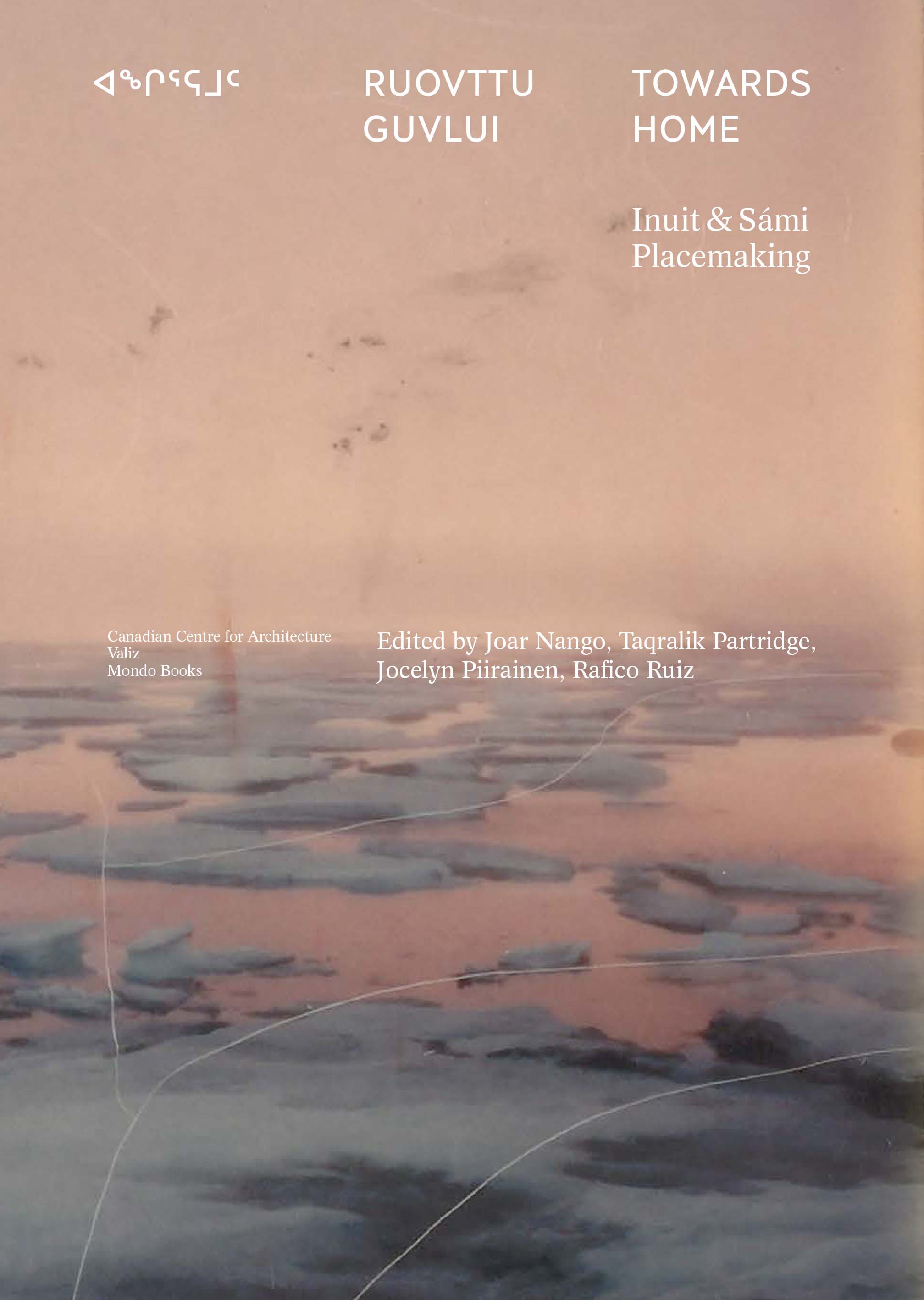
Sovereign Words
UNAVAILABLE

Let The River Flow
UNAVAILABLE
